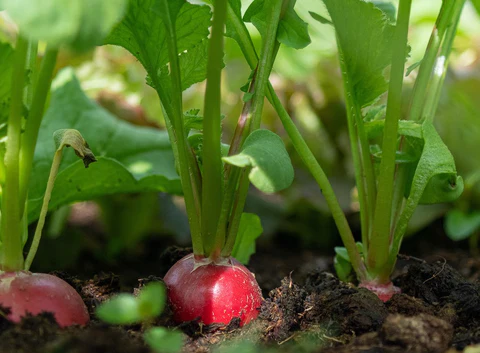
Th10 . 11, 2024 18:28 Back to list
Premium 8-10-8 NPK Fertilizer for Optimal Plant Growth and Nutrient Balance
The Importance of High-Quality 8-10-8 NPK Fertilizer for Optimal Plant Growth
Fertilizers have become a cornerstone of modern agriculture, essential for maximizing crop yields and ensuring food security. Among the various types of fertilizers available in the market, high-quality NPK fertilizers stand out due to their balanced nutrient composition. Specifically, the 8-10-8 NPK fertilizer is gaining popularity among both professional farmers and home gardeners. This article will delve into the significance, composition, benefits, and application methods of high-quality 8-10-8 NPK fertilizer.
Understanding NPK Fertilizers
NPK fertilizers contain three primary macronutrients nitrogen (N), phosphorus (P), and potassium (K). The numbers in the fertilizer designation indicate the percentage of each nutrient. In the case of 8-10-8 NPK fertilizer, it contains 8% nitrogen, 10% phosphorus, and 8% potassium. Each of these nutrients plays a critical role in plant health and development.
- Nitrogen (N) Vital for protein synthesis and chlorophyll production, nitrogen is crucial for leafy growth. It promotes vigorous vegetative development, which is especially important for crops that are harvested for their leaves, such as lettuce and spinach.
- Phosphorus (P) Essential for energy transfer and photosynthesis, phosphorus supports root development, flowering, and fruiting. Adequate phosphorus levels ensure that plants can establish strong root systems and produce abundant flowers and fruits.
- Potassium (K) This nutrient aids in water regulation, enzyme activation, and overall plant vitality. Potassium enhances disease resistance and improves the quality of fruits and vegetables, leading to better yields.
The Benefits of High-Quality 8-10-8 NPK Fertilizer
1. Balanced Nutrient Supply The balanced ratio of 8-10-8 ensures that plants receive adequate amounts of all three essential nutrients. This balance helps avoid nutrient deficiencies that can lead to stunted growth, poor yields, and reduced crop quality.
2. Improved Crop Performance High-quality NPK fertilizers are formulated to be readily available to plants, promoting quick uptake. This can lead to faster growth rates, better flowering, and higher fruit set, resulting in a more productive harvest.
3. Enhanced Soil Health Quality 8-10-8 fertilizers often contain organic matter and micronutrients that contribute to soil health. Improved soil structure enhances water retention and microbial activity, creating a more conducive environment for plant growth.
high quality 8-10-8 npk fertilizer

4. Versatility The 8-10-8 ratio is suitable for a wide range of crops, including vegetables, fruits, and ornamental plants. This versatility makes it a favorable choice for both organic and conventional farming practices.
5. Fertilizer Efficiency High-quality fertilizers are designed to minimize nutrient runoff and leaching, ensuring that more nutrients are available to plants rather than being lost to the environment. This efficiency is increasingly important in sustainable agriculture practices.
Application Methods
When applying high-quality 8-10-8 NPK fertilizer, understanding the right application methods is crucial for achieving optimal results. Here are some recommended practices
- Soil Testing Before applying any fertilizer, conduct a soil test to determine nutrient levels and pH. This information will guide you on the quantity and frequency of fertilizer needed.
- Timing Apply the fertilizer during the growing season when plants are most actively absorbing nutrients. For many crops, this may be done at planting and again during mid-season.
- Method of Application Fertilizer can be applied as a broadcast, incorporated into the soil, or used as a side-dress, depending on the crop and the specific growth stage. Follow the recommendations provided on the product label for best results.
- Watering Water plants after applying granular fertilizers to help dissolve the nutrients and facilitate their uptake by plant roots.
Conclusion
In conclusion, high-quality 8-10-8 NPK fertilizer plays a vital role in enhancing plant growth and crop yields. Its balanced nutrient composition supports various growth stages, making it a versatile option for gardeners and farmers alike. By understanding the importance of the nutrients it contains, applying it correctly, and ensuring overall soil health, growers can significantly improve their agricultural outcomes. As the demand for food continues to rise, embracing such effective fertilization techniques is crucial for sustainable agricultural practices.
-
Premium Organic 10-10-10 Fertilizer for All Plants
NewsAug.16,2025
-
Organic Manure Compost: Natural NPK Fertilizer for Healthy Plants
NewsAug.15,2025
-
Calcium Ammonium Nitrate (CAN) White Granular for Agriculture
NewsAug.14,2025
-
Premium 50lb 13-13-13 Fertilizer Bags - Balanced NPK for All Plants
NewsAug.13,2025
-
Premium 10-10-10 Organic Fertilizer for Balanced Plant Growth
NewsAug.12,2025
-
Advansix Sulf-N Ammonium Sulfate Fertilizer 21-0-0 | Agricultural
NewsAug.11,2025
